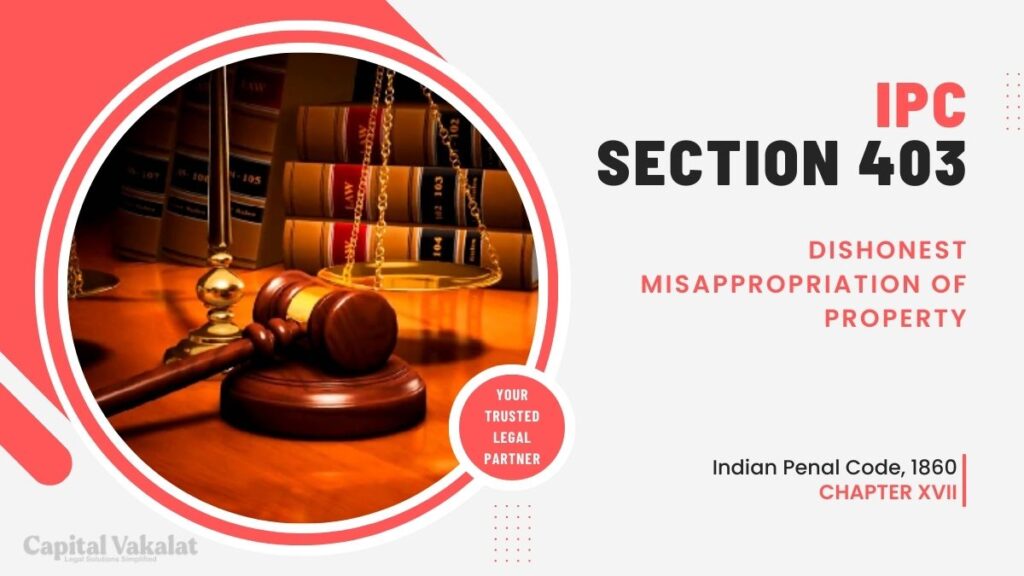When it comes to safeguarding property rights, legal frameworks play a pivotal role. Section 403 of the Indian Penal Code (IPC) deals with a specific offense that concerns dishonest misappropriation of property.

This article aims to provide a comprehensive understanding of Section 403 IPC, exploring its elements, legal consequences, real-life examples, and more.
Understanding Section 403 IPC
Section 403 of the IPC addresses the offense of dishonest misappropriation of property. It outlines the legal implications for individuals who dishonestly use or dispose of someone else’s property for their benefit. To comprehend this section fully, one must delve into its elements and the legal framework that surrounds it.
Elements of Dishonest Misappropriation
To establish an offense under Section 403 IPC, certain key elements must be present. This section requires the prosecution to prove that the accused:
- Appropriated property dishonestly.
- Intended to use or dispose of the property for personal gain.
- Acted without the owner’s consent.
Understanding these elements is crucial for both legal practitioners and individuals seeking to grasp the implications of Section 403 IPC.
Legal Consequences of Section 403 IPC
The legal consequences of being charged and convicted under Section 403 IPC are significant. Offenders may face imprisonment and fines, emphasizing the severity of the offense. This section aims to deter individuals from engaging in dishonest misappropriation and protect the property rights of others.
Differences between Theft and Misappropriation
Distinguishing between theft and misappropriation is crucial, as both involve the wrongful acquisition of property. This section will explore the nuances that set these offenses apart, helping readers understand the specific elements that constitute dishonest misappropriation under Section 403 IPC.
Defenses against Section 403 IPC
Individuals accused of dishonest misappropriation may have legal defenses at their disposal. This section will explore potential defenses, such as lack of intent, mistake, or consent, providing insights into how accused individuals can contest charges brought against them.
Reporting and Legal Procedures
Understanding the process of reporting and the subsequent legal procedures is essential for both victims and those accused of dishonest misappropriation. This section will outline the steps involved, from filing a complaint to the conclusion of legal proceedings.
Impact on Individuals and Businesses
The implications of dishonest misappropriation extend beyond legal consequences. This section will delve into the broader impact on individuals and businesses, including financial losses, damaged reputations, and the importance of preventive measures.
Conclusion
In conclusion, Section 403 IPC addresses a critical aspect of property offenses, aiming to protect individuals from dishonest misappropriation. By understanding the elements, legal consequences, and real-life examples, one can navigate the complexities surrounding this section more effectively.
Frequently Asked Questions
Can lack of intent be a valid defense against charges under Section 403 IPC?
Yes, lack of intent is a potential defense. If the accused can demonstrate a lack of dishonest intent, it may impact the outcome of the case.
How can businesses protect themselves from dishonest misappropriation?
Implementing robust internal controls, conducting regular audits, and promoting ethical practices can help businesses minimize the risk of dishonest misappropriation.
What should I do if I suspect dishonest misappropriation of my property?
If you suspect dishonest misappropriation, it is advisable to report the incident to the appropriate authorities and seek legal advice promptly.
Are there any specific industries more prone to dishonest misappropriation?
Dishonest misappropriation can occur in any industry, but certain sectors dealing with valuable intellectual property or sensitive information may be at a higher risk.